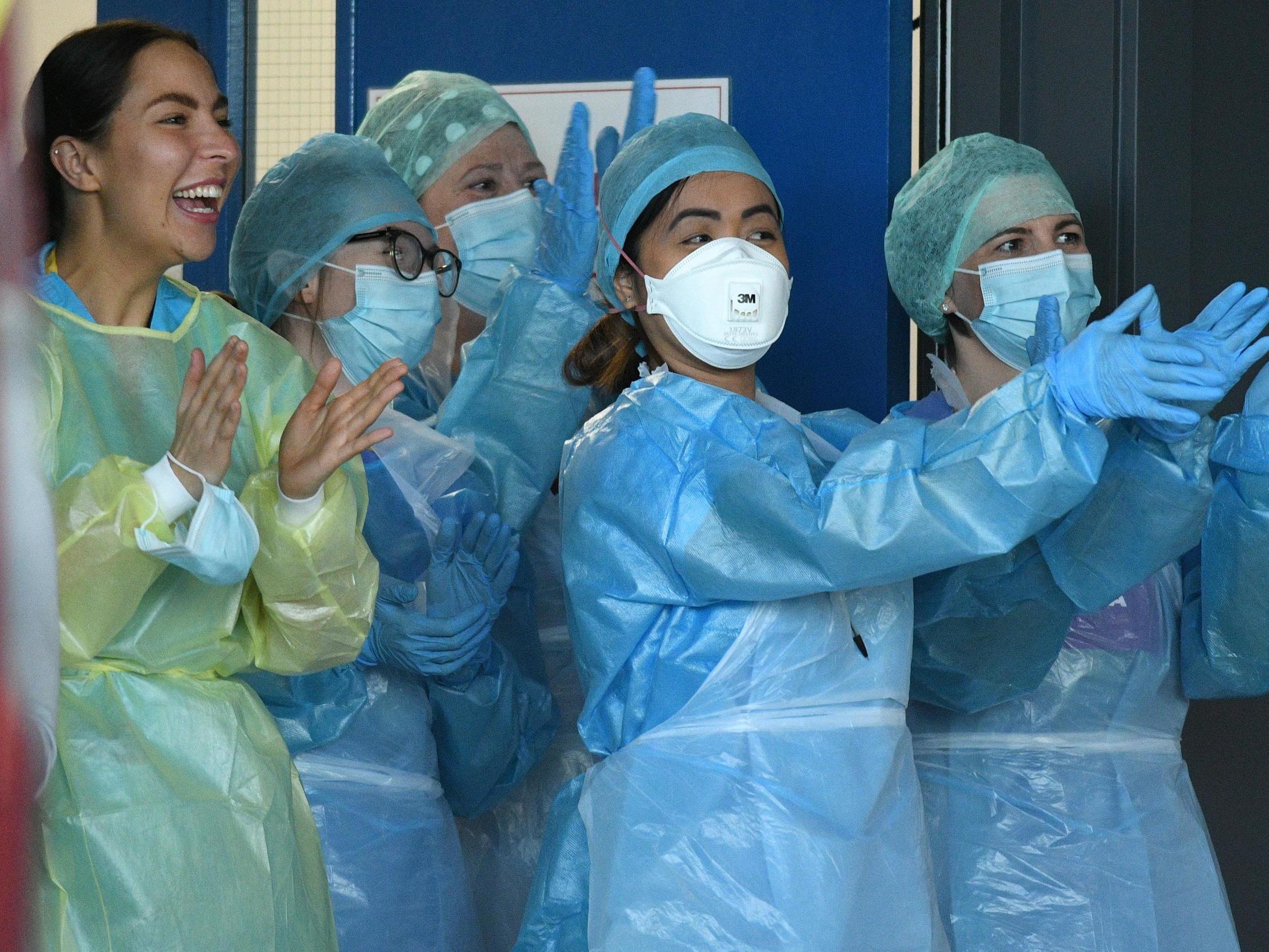Would the NHS and social care survive without foreign staff?
Data shows UK more reliant on workers from overseas than ever – as experts warn of ‘almost unimaginable’ staff shortages without migrants
Your support helps us to tell the story
From reproductive rights to climate change to Big Tech, The Independent is on the ground when the story is developing. Whether it's investigating the financials of Elon Musk's pro-Trump PAC or producing our latest documentary, 'The A Word', which shines a light on the American women fighting for reproductive rights, we know how important it is to parse out the facts from the messaging.
At such a critical moment in US history, we need reporters on the ground. Your donation allows us to keep sending journalists to speak to both sides of the story.
The Independent is trusted by Americans across the entire political spectrum. And unlike many other quality news outlets, we choose not to lock Americans out of our reporting and analysis with paywalls. We believe quality journalism should be available to everyone, paid for by those who can afford it.
Your support makes all the difference.Opposition parties and campaign groups have accused ministers of “hypocrisy” over their attitude to NHS staff and care workers, as the government attempts to bring in much tighter immigration controls for the UK.
Boris Johnson’s government wants to end freedom of movement rules with the immigration bill – which passed its first Commons hurdle last week – as part of the move towards a points-based immigration system.
Although the Home Office is yet to flesh out how a points-based system would work in detail, a new visa is expected to allow doctors, nurses and health professionals from overseas to work in the NHS.
However, experts have warned a new points-based system would bar many of the workers considered “low skilled” – despite performing vital frontline roles protecting people’s lives during the coronavirus pandemic.
So exactly how dependent is the UK on health and care staff from overseas? And what will happen if the influx of key workers from overseas is seriously restricted?
How many foreign nationals work in the NHS and social care?
Around 153,000 workers in NHS England report to have a non-British nationality – 13.1 per cent of its total workforce, according to a 2019 parliamentary report based on NHS England data. However, not all staff across the NHS have their nationality recorded.
More detailed, UK-wide analysis by the Nuffield Trust think tank – based on ONS data on the number of health and social care workers actually born overseas – shows the true extent of the nation’s dependence upon foreign-born workers.
Around 818,000 people born abroad made up 19 per cent of all workers across health and social care in the UK in 2018-19 – almost one fifth of all workers in the sector.
Migrants make a particularly vital contribution to hospitals. According to the Nuffield Trust analysis, 23 per cent – almost one in four – of all hospital workers were born outside the UK.
Is the UK becoming more or less reliant on foreign key workers?
Foreign-born workers accounted for almost 50 per cent of the rise in the UK’s health and social care workforce between 2009/10 and 2018/19, according to Nuffield Trust analysis.
An immigration crackdown around 2010 had caused a slowdown in workers coming from outside Europe, but the NHS and social care sector has been largely able to respond to shortages because of the free movement of labour across the European Economic Area.
The sector has grown by more than 446,000 workers over the past decade, with more than 221,000 of these workers born overseas. People born in EU countries and in the rest of the world each accounted for around a quarter of the increase.
What happens if the influx of key workers from overseas is curbed?
Labour has argued that the planned salary threshold of £25,600 sends a signal that anyone earning less is unskilled and “unwelcome” to come to Britain to work.
Mark Dayan, policy analyst at the Nuffield Trust, warned the changes could cause a harmful slowdown in migration. Without foreign workers, NHS and care home staffing shortages would be “almost unimaginable”, he said.
“For the vast majority of roles in social care a points-based system is going to be a significant barrier – and that remains a real concern,” Mr Dayan told The Independent.
“For doctors and nurses who do meet the salary and qualification requirements … there are still deterrent factors to them coming to the UK, such as the thousands of pounds they could have to pay, depending on whether they have children.”
Recent research by the IPPR think tank found that 66 per cent of the EU migrants currently working in health and social care in the UK would be ineligible for a skilled work visa under government plans.

Could the NHS lose current staff from overseas?
The Home Office brought in a 12-month free visa extension for some existing foreign NHS staff in March – but it does not include some workers such as porters and cleaners who will have to pay thousands of pounds to stay in the UK.
Campaigners want the free, year-long extension to cover all key workers to avoid the risk of losing staff whose visa is about to expire.
Satbir Singh, chief executive of the Joint Council for the Welfare of Immigrants (JCWI), said: “Just a few weeks ago this government was referring to those excluded as low-skilled and unwelcome. But they have proven over the last few months that they are the backbone of our society.”
Polling suggests the public largely shares that view. A YouGov survey for the JCWI found 54 per cent of people are in favour of loosening immigration restrictions for key workers.

Join our commenting forum
Join thought-provoking conversations, follow other Independent readers and see their replies
Comments